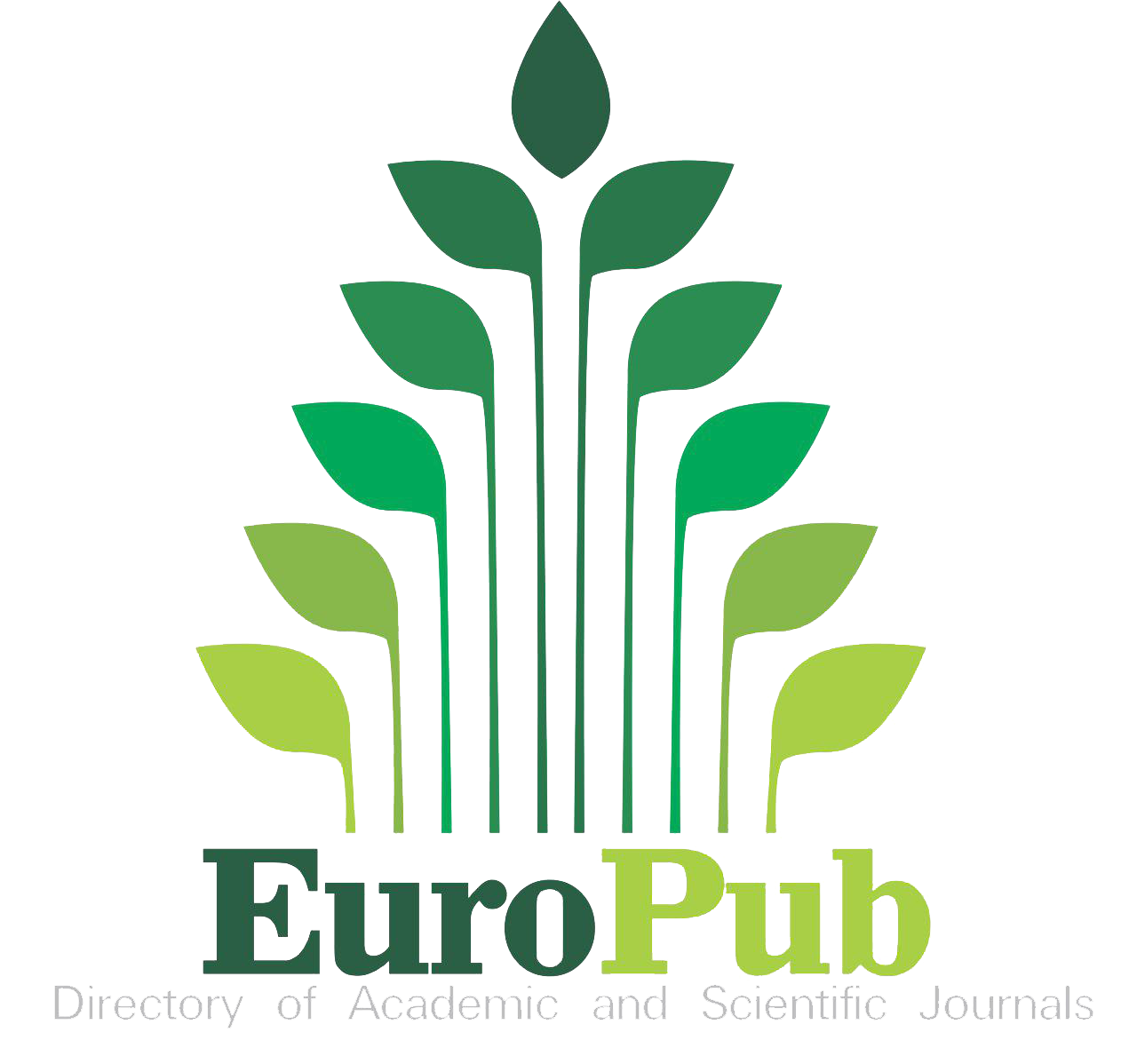EXPLORING OF GREEN HUMAN RESOURCE MANAGEMENT ON EMPLOYEE BEHAVIOR AND PERFORMANCE
DOI:
https://doi.org/10.23969/trikonomika.v24i1.20311Keywords:
Green behavior; task performance; job satisfaction; narcissism, GHRM, green behavior, task performance, job satisfaction, narcissismAbstract
The development of the National Capital City (Ibu Kota Nusantara/IKN) which is located in East Kalimantan, prioritizes the green city concept. This study aims to examine the nuances of employee responses to the implementation of environmentally friendly human resource management with narcissism, as an individual trait, influencing the relationship between Green Human Resource Management (GHRM) and green as well as performance-related behavior tasks and job satisfaction. This type of research is quantitative descriptive, with a population of employees who work at hotels in East Kalimantan. The sample was determined using systematic random sampling, and 400 samples were obtained. Data is distributed online in a Likert scale and the analysis is conducted using the PLS-SEM statistical technique. The results obtained show that the implementation of GHRM has a significant effect on green behavior and performance-related outcomes. On the other hand, narcissism is only able to moderate the relationship between GHRM and task performance and job satisfaction.
Downloads
References
Aboramadan, M. (2022). The Effect of Green HRM on Employee Green Behaviours in Higher Education: The Mediating Mechanism of Green Work Engagement. International Journal of Organizational Analysis, 30(1), 7–23. https://doi.org/ 10.1108/ijoa-05-2020-2190
Ahmad, M. G., Klotz, A. C., & Bolino, M. C. (2021). Can Good Followers Create Unethical Leaders? How Follower Citizenship Leads to Leader Moral Licensing and Unethical Behavior. Journal of Applied Psychology, 106(9), 1374. https://doi.org/10.1037/apl0000839
Akhtar, M. W., Garavan, T., Javed, M., Huo, C., Junaid, M., & Hussain, K. (2023). Responsible Leadership, Organizational Ethical Culture, Strategic Posture, and Green Innovation. Service Industries Journal, 43(7–8), 454–474. http://dx.doi.org/10.1080/02642069.2023.2172165
Al-Shammari, M., Rasheed, A., & Al-Shammari, H. A. (2019). CEO Narcissism and Corporate Social Responsibility: Does CEO Narcissism Affect CSR Focus? Journal of Business Research, 104(1), 106–117. https://doi.org/10.1016/j.jbusres.2019.07.005
Allied Market Research. (2021). Ecotourism Market to Reach $333.8 Bn, Globally, by 2027 at 14.3% CAGR: Allied Market Research. PRNewswire. https://www.prnewswire.com/news-releases/ecotourism-market-to-reach-333-8-bn-globally-by-2027-at-14-3-cagr-allied-market-research-301214742.html#:~:text=26%2C 2021 /PRNewswire/ -- Allied Market Research,Global Opportunity Analysis and Industry Forecast%2C 2021–2027.%22According
Aman-Ullah, A., Aziz, A., Ibrahim, H., Mehmood, W., & Aman-Ullah, A. (2023). The Role of Compensation in Shaping Employee’s Behaviour: A Mediation Study Through Job Satisfaction During the COVID-19 Pandemic. Revista de Gestão, 30(2), 221–236. https://doi.org/10.1108/REGE-04-2021-0068
Anugrah, N. (2023). Indonesia Serukan 3 Isu Lingkungan dan Pembangunan Berkelanjutan di AALCO ke-61. Kementerian Lingkungan Hidup dan Kehutanan. https://www.menlhk.go.id/news/indonesia-serukan-3-isu-lingkungan-dan-pembangunan-berkelanjutan-di-aalco-ke-61/
Benevene, P., & Buonomo, I. (2020). Green Human Resource Management: an Evidence based Systematic Literature Review. Sustainability, 12(15), 5974. https://doi.org/10.3390/su12155974
Bissing-Olson, M. J., Iyer, A., Fielding, K. S., & Zacher, H. (2013). Relationships Between Daily Affect and Pro-Environmental Behavior at Work: The Moderating Role of Pro-Environmental Attitude. Journal of Organizational Behavior, 34(2). http://dx.doi.org/10.1002/job.1788
Chaudhary, R. (2021). Effects of Green Human Resource Management: Testing A Moderated Mediation Model. International Journal of Productivity and Performance Management, 70(1), 201–216. https://doi.org/10.1108/IJPPM-11-2018-0384
Choi, Y., & Phan, W. M. J. (2022). Narcissistic Leaders: The Good, the Bad, and Recommendations. Organizational Dynamics, 51(3), 100868. https://doi.org/10.1016/j.orgdyn.2021.100868
Dumont, J., Shen, J., & Deng, X. (2017). Effects of Green HRM Practices on Employee Workplace Green Behavior: The Role of Psychological Green Climate and Employee Green Values. Human Resource Management, 56(4), 613–627. https://doi.org/10.1002/hrm.21792
Engelen, A., Neumann, C., & Schmidt, S. (2016). Should Entrepreneurially Oriented Firms Have Narcissistic CEOs? Journal of Management, 42(3), 698–721. https://doi.org/ 10.1177/0149206313495413
Galli, B. J. (2018). Importance and Impact of Culture and People in Continuous Improvement. International Journal of Sociotechnology and Knowledge Development, 10(4), 13–44. https://doi.org/10.4018/IJSKD.2018100102
Greenbaum, R. L., Gray, T. W., Hill, A. D., Lima, M., Royce, S. S., & Smales, A. A. (2022). Coworker Narcissism: Employee Emotional and Behavioral Reactions as Moderated by Bottom-Line Mentality and Trait Competitiveness. Journal of Management, 50(4), 1295–1330. https://doi.org/10.1177/01492063221132791
Hair, J., & Alamer, A. (2022). Partial Least Squares Structural Equation Modeling (PLS-SEM) in Second Language and Education Research: Guidelines Using an Applied Example. Research Methods in Applied Linguistics, 1(3), 100027.
He, J., Morrison, A. M., & Zhang, H. (2021). Being Sustainable: The Three-Way Interactive Effects of CSR, Green Human Resource Management, and Responsible Leadership on Employee Green Behavior and Task Performance. Corporate Social Responsibility and Environmental Management, 28(3), 1043–1054. https://doi.org/10.1002/csr.2104
Hendriyani, G. A. D. (2023). Siaran Pers: Menparekraf: Pencapaian Target Parekraf 2023 Perlu Ditopang dengan Deregulasi. Kementerian Pariwisata dan Ekonomi Kreatif/Badan Pariwisata dan Ekonomi Kreatif.
Karatepe, O. M., Hsieh, H., & Aboramadan, M. (2022). The Effects of Green Human Resource Management and Perceived Organizational Support for the Environment on Green and Non-Green Hotel Employee Outcomes. Journal of Hospitality Management, 103(1), 103202. https://doi.org/10.1016/j.ijhm.2022.103202
Khalid, B., Shahzad, K., Shafi, M. Q., & Paille, P. (2022). Predicting Required and Voluntary Employee Green Behavior Using The Theory of Planned Behavior. Corporate Social Responsibility and Environmental Management, 29(5), 1300–1314. https://doi.org/10.1002/csr.2270
Khan, M. H., & Muktar, S. N. (2021). What’s Next for Green Human Resource Management: Insights and Trends for Sustainable Development. International Journal of Sustainable Development and Planning, 16(1), 181–194. https://doi.org/10.18280/ijsdp.160119
Kim, B., Jee, S., Lee, J., An, S., & Lee, S. M. (2017). Relationships Between Social Support and Student Burnout: A Meta-Analytic Approach. Stress and Health, 34(1), 127–134. https://doi.org/10.1002/smi.2771
Kim, B., Lee, S., & Kang, K. H. (2018). The Moderating Role of CEO Narcissism on the Relationship Between Uncertainty Avoidance and CSR. Tourism Management, 67(1), 203–213. https://doi.org/10.1016/j.tourman.2018.01.018
Lang, Y., Zhang, H., Liu, J., & Zhang, X. (2022). Narcissistic Enough to Challenge: The Effect of Narcissism on Change-Oriented Organizational Citizenship Behavior. Frontiers in Psychology, 12(1), 792818. https://doi.org/10.3389/fpsyg.2021.792818
Mathieu, C. (2013). Personality and Job Satisfaction: The Role of Narcissism. Personality and Individual Differences, 55(6), 650–654. https://doi.org/10.1016/j. paid.2013.05.012
Mo, Z., Liu, M. T., Wong, I. A., & Wu, P. (2022). The Role of (in) Congruence Modes Between Supervisor Prescriptive and Descriptive Norms on Employee Green Behavior. Tourism Management, 93(1), 104627. https://doi.org/10.1016/j.tourman.2022.104627
Nehrlich, A. D., Gebauer, J. E., Sedikides, C., & Schoel, C. (2019). Agentic Narcissism, Communal Narcissism, and Prosociality. Journal of Personality and Social Psychology, 117(1), 142–165. http://dx.doi.org/10.1037/pspp0000190
Nemteanu, M.-S., & Dabija, D.-C. (2021). The Influence of Internal Marketing and Job Satisfaction on Task Performance and Counterproductive Work Behavior in an Emerging Market during the COVID-19 Pandemic. Environmental Research and Public Healt, 18(7), 3670. https://doi.org/10.3390/ijerph18073670
Petrenko, O. V., Aime, F., Ridge, J., & Hill, A. (2016). Corporate Social Responsibility or CEO Narcissism? CSR Motivations and Organizational Performance. Strategic Management Journal, 37(2), 262–279. https://doi.org/10.1002/smj.2348
Pham, N. T., Tuckov´a, Z., & Chiappetta Jabbour, C. J. (2019). Greening The Hospitality Industry: How Do Green Human Resource Management Practices Influence Organizational Citizenship Behaviour in Hotels? A Mixed-Methods Study. Tourism Management, 72(1), 386–399. https://doi.org/10.1016/j.tourman.2018.12.008
Ragas, S. F. P., Tantay, F. M. A., Chua, L. J. C., & Sunio, C. M. C. (2017). Green Lifestyle Moderates GHRM’s Impact on Job Performance. International Journal of Productivity and Performance Management, 66(7), 857–872. https://doi.org/10.1108/IJPPM-04-2016-0076
Raza, M., Malik, A. A., & Bilberg, A. (2021). PDCA Integrated Simulations Enable Effective Deployment of Collaborative Robots: Case of A Manufacturing SME. Procedia CIRP, 104, 1518–1522. https://doi.org/10.1016/j.procir.2021.11.256
Raza, M., & Malik, A. N. (2020). The Impact of Green Human Resource Practices on Employees’ Extra Role Behaviour: The Moderating Role of Narcissism. Journal of Workplace Behaviour, 1(1), 17–38. https://charisma-jwb.com/index.php/jwb/article/view/22
Reliatoro, S., Laksono, T., Silaban, M. D., Rahayu, B. B., Adiwanosa, R. E., Haikal, M., Suwanda, S., Rafael, A., Nuhidayati, D., & Berlianto, M. (2023). Green Leadership. In The Handbook of Climate Change Leadership in Organisations: Developing Leadership for the Age of Sustainability. https://doi.org/10.4324/9781003343011-11
Ren, S., Tang, G., & E. Jackson, S. (2018). Green Human Resource Management Research in Emergence: A Review and Future Directions. Asia Pacific Journal of Management, 35(3), 769–803. https://doi.org/10.1007/s10490-017-9532-1
Rubel, M. R. B., Kee, D. M. H., & Rimi, N. N. (2021). The Influence of Green HRM Practices on Green Service Behaviors: The Mediating Effect of Green Knowledge Sharing. Employee Relations, 43(5), 996–1015. https://doi.org/10.1108/ER-04-2020-0163
Shafaei, A., Nejati, M., & Mohd Yusoff, Y. (2020). Green Human Resource Management: A Two-Study Investigation of Antecedents and Outcomes. International Journal of Manpower, 41(7), 1041–1060. https://doi.org/10.1108/IJM-08-2019-0406
Shah, N., & Soomro, B. A. (2023). Effects of Green Human Resource Management Practices on Green Innovation and Behavior. Management Decision, 61(1), 290–312. https://doi.org/10.1108/MD-07-2021-0869
Shao, X., Jiang, Y., Yang, L., & Zhang, L. (2023). Does Gender Matter? The Trickle-Down Effect of Voluntary Green Behavior in Organizations. Asia Pacific Journal of Human Resources, 61(1), 57–78. https://doi.org/10.1111/1744-7941.12348
Spurk, D., & Hirschi, A. (2018). The Dark Triad and Competitive Psychological Climate at Work: A Model of Reciprocal Relationships in Dependence of Age and Organization Change. European Journal of Work & Organizational Psychology, 27(1), 736–751.
Tandon, A., Dhir, A., Madan, P., Srivastava, S., & Nicolau, J. L. (2023). Green and Non-Green Outcomes of Green Human Resource Management (GHRM) in The Tourism Context. Tourism Management, 98(1), 104765. https://doi.org/10.1016/j.tourman.2023.104765
Tang, G., Ren, S., Wang, M., Li, Y., & Zhang, S. (2023). Employee Green Behaviour: A Review and Recommendations for Future Research. International Journal of Management Reviews, 25(2), 297–317. https://doi.org/10.1111/ijmr.12328
Tanoto, Y. (2023). Pengelolaan Energi Berkelanjutan di Hotel. Yogyakarta: Zahir Publishing.
Tanova, C., & Bayighomog, S. W. (2022). Green Human Resource Management in Service Industries: The Construct, Antecedents, Consequences, and Outlook. Service Industries Journal, 42(5–6), 412–452. https://doi.org/10.1080/02642069.2022.2045279
Yang, H., Shi, X., & Wang, S. (2021). Moderating Effect of Chief Executive Officer Narcissism in The Relationship Between Corporate Social Responsibility and Green Technology Innovation. Frontiers in Psychology, 12(1), 717491. https://doi.org/10.3389/fpsyg.2021.717491
Zacher, H., Rudolph, C. W., & Katz, I. M. (2023). Employee Green Behavior as The Core of Environmentally Sustainable Organizations. Annual Review of Organizational Psychology and Organizational Behavior, 10(1), 465–494. https://doi.org/10.1146/annurev-orgpsych-120920-050421
Zaidi, H., & Azmi, F. T. (2024). Workplace Pro-Environmental Behaviour: A Review and Bibliometric Analysis. International Journal of Productivity and Performance Management, 73(1), 158–185. https://doi.org/10.1108/IJPPM-09-2021-0507
Downloads
Published
How to Cite
Issue
Section
License
Copyright (c) 2025 TRIKONOMIKA

This work is licensed under a Creative Commons Attribution-NonCommercial-ShareAlike 4.0 International License.











